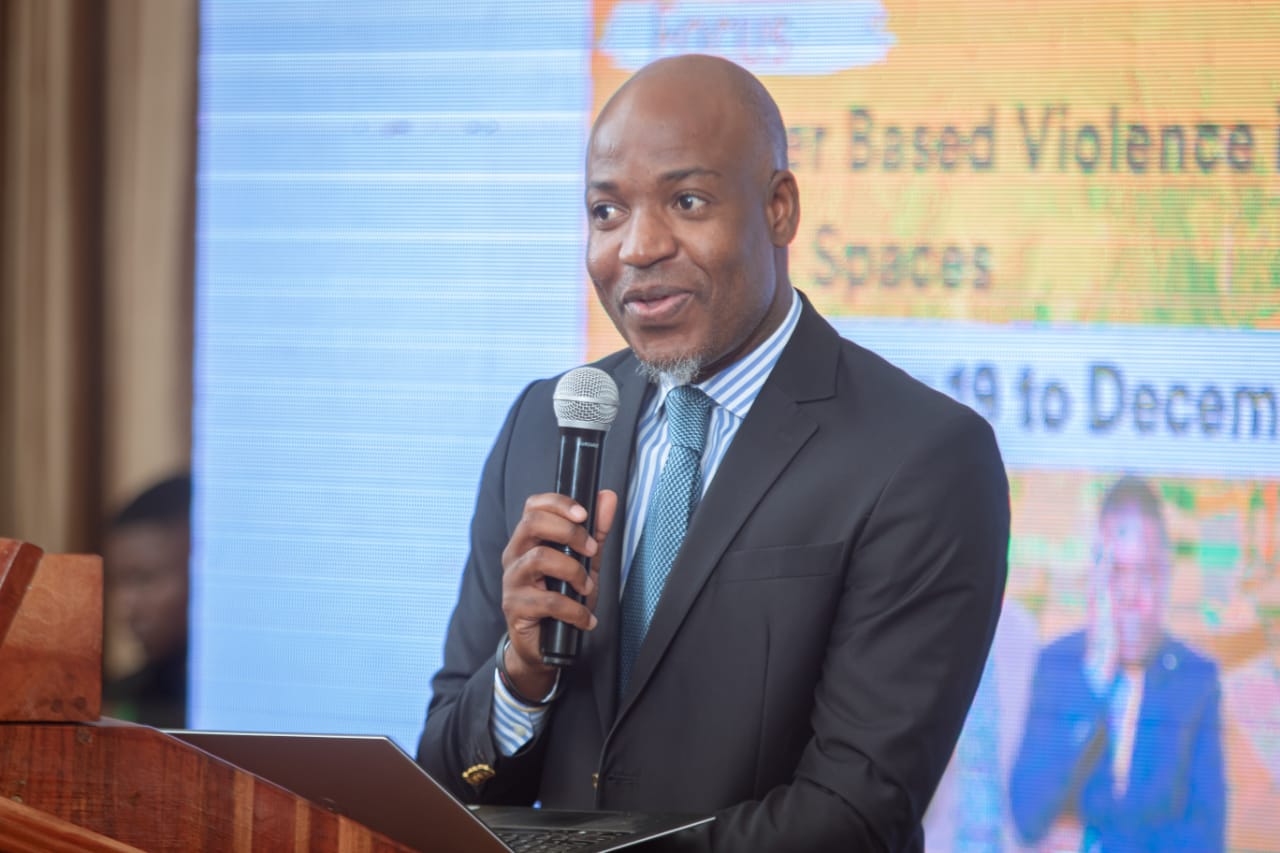|
Getting your Trinity Audio player ready...
|
A training workshop organised by UN Women Zimbabwe in partnership with Lower Guruve Development Association (LGDA) capacitated the media on how to report on gender (women, men, boys, and girls) during the humanitarian crises with a reflection on how the journalists in Zimbabwe tackled this during COVID-19.
The training took place physically in Bindura, Mashonaland Central Province from the 20th to the 24th of March 2023.
“The purpose for which we convened this meeting is to reflect and strengthen journalistic skills among editors and journalists on gender-responsive coverage of women, men, boys, and girls during a humanitarian crisis. We also seek to sensitize, acknowledge and advance the crucial role of media in achieving gender equality in all domains by creating gender-sensitive and gender-transformative content and breaking gender stereotypes in media,” Innocent Katsande, the UN Women Zimbabwe’s Communication Officer told participants.
UN Women Zimbabwe leads and coordinates the United Nations system’s wide efforts to ensure that commitments to gender equality and gender mainstreaming translate into action throughout the world.
Katsande said the media hugely influences perceptions and ideas about the role of girls and women in society.
“Unfortunately until now, the media tend to perpetuate gender inequality using its influence. In all contexts, society is influenced by gender stereotypes that the media presents using various channels. Regardless of the progress made in response and addressing gender inequalities, there is still more that needs to be done to change the narrative.
“UN Women Zimbabwe recognises the power of media to change the perceptions of the society on gender equality and gender dynamics in humanitarian crisis. The media can promote gender equality by creating gender-sensitive and gender-transformative content, challenging gender stereotypes, and traditional social and cultural norms, and attitudes. UN Women intends to engage and work closely with the media, showing and amplifying women and girls’ voices and their roles and challenges in humanitarian contexts, as front-liners in a variety of issues on a daily basis, therefore the media is a potential key ally in advancing women’s rights, therefore instrumental in Gender in Humanitarian Action,” Katsande added.
Addressing journalists during the media sensitization workshop in Bindura, Tavirai Marega, the LGDA Programme coordinator alluded to the intervention by the government of Japan in addressing COVID-19 in Mashonaland Central Province.
“The Ministry of Health and Child Care in partnership with LGDA through funding from the Japanese Government’s Supplementary Budget being managed by UNWOMEN embarked on intensive Infection Prevention Control (IPC) training to capacitate Village Health Workers (VHW), Community Influencers (CI) and volunteers with COVID 19 information that will help reduce the spread of Infection among vulnerable women and girls in drought-affected districts (Guruve and Mbire) of Mashonaland Central Province, Zimbabwe. The training programme was designed to cascade COVID-19 information through VHWs and CIs gave their important linkage with communities,” Marega said.
There was an emphasis on the need for social behaviour change communication strategy by media practitioners to demystify harmful and religious as well as cultural practices that perpetuate gender inequalities.
Judith Mhuka, a village health worker (VHW) from Kazunga Village, Ward 19, Guruve District who was part of the training encouraged journalists to spotlight stories of positive change in tackling emergencies like COVID-19.
“When the media shares stories of positive change, like amplifying how vaccines successfully saved lives, it addresses vaccine hesitancy and stereotypes like saying the vaccines could result in side effects. It is important to highlight how vaccines saved at-risk populations like people with co-morbidities,” Mhuka said.
In the end, the media had a number of key takeaways. They now appreciate UN Women’s Work in Humanitarian Action and Resilience.
“The workshop was very useful to me. I now have an understanding of key gender issues in humanitarian crises. I was capacitated to analyse media content from a gender perspective. Our journalists who were in attendance will now be able to cover humanitarian stories with a gender angle or lens. Media practitioners can now use gender analysis tools to enhance innovative, thought-provoking, informative, as well as agenda-setting gender-aware coverage,” Zerubabel Mudzingwa, the Editor of News day Zimbabwe told Spiked Online Media.






